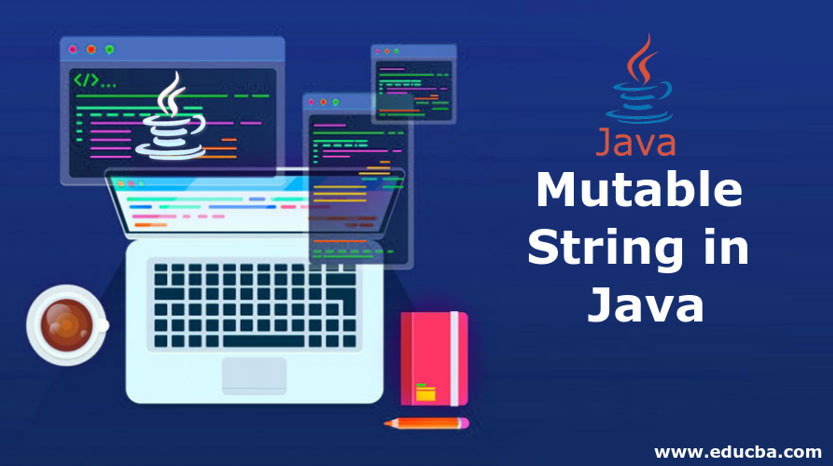Why Are Strings Immutable in Java? Crucial Expertise for Designers
Why Are Strings Immutable in Java? Crucial Expertise for Designers
Blog Article
What Is Unalterable Strings and Just How It Works
In the world of shows, understanding the concept of unalterable strings is paramount for producing durable and protected applications. Unalterable strings describe strings that can not be altered after they are created, ensuring data honesty and predictability within the code. This basic principle plays a crucial role in various shows languages and uses a distinct technique to taking care of data. By discovering the intricacies of exactly how immutable strings function, one can uncover a world of advantages and possibilities that can boost the quality and efficiency of software application growth.
The Essentials of Immutable Strings
Immutable strings, as a basic idea in programs, are character sequences that can not be altered once they are produced. This implies that once a string is designated a value, that value can not be modified. In languages like Python and Java, strings are immutable objects, leading to various ramifications in regards to memory management and data honesty.
Among the vital benefits of immutable strings is that they supply a complacency in information control. Since the web content of an unalterable string can not be customized, it makes sure that the initial information remains intact, minimizing the risk of unplanned modifications throughout program implementation (Why are strings immutable in Java?). This property also streamlines debugging procedures, as developers can rely on that once a string is specified, its value will certainly not be inadvertently modified
When a brand-new string is developed based on an existing one, rather than modifying the initial string, the brand-new worth is saved separately. Generally, recognizing the basics of immutable strings is essential for mastering programming concepts and optimizing code performance.
Advantages of Unalterable Strings
Building upon the protection and effectiveness benefits of unalterable strings, their benefits reach enhancing code dependability and simplifying simultaneous shows tasks. By being unalterable, strings can not be changed after production, which removes the threat of unplanned changes in the data they save. This integral immutability ensures that as soon as a string is produced, its worth stays continuous throughout the program's implementation, lowering the opportunities of pests triggered by unexpected changes.
Furthermore, unalterable strings add to code dependability by making it less complicated to reason about the state of a program. Considering that strings can not be changed, developers can trust that a string will constantly hold the same value, streamlining debugging and maintenance initiatives. This predictability brings about more secure and dependable codebases.

Application in Programs Languages
Within different programming languages, the consolidation of immutable strings is a fundamental facet that affects just how information is taken care of and manipulated within code frameworks. The application of unalterable strings varies throughout various programs languages, with each language supplying its own devices to sustain this principle.

In contrast, languages like C and C++ do not have built-in assistance for unalterable strings. Developers in these languages need to manually execute immutability by applying regulations within their code to stop direct modifications to string objects.
Finest Practices for Working With Immutable Strings
When taking care of unalterable strings in shows languages like Java and Python, adhering to ideal methods makes sure reliable and secure information adjustment. Among the essential finest practices is to use StringBuilder or StringBuffer rather than straight official website manipulating strings, particularly when taking care of substantial concatenation operations. These courses give mutable options for string adjustment, assisting to stay clear of unneeded memory appropriations and improving efficiency.
Furthermore, when working with delicate information such as passwords or API tricks, it is essential to avoid keeping them as simple text in unalterable strings. Utilizing protected storage devices like char selections or specialized collections for handling delicate info aids alleviate safety and security risks linked with immutable strings.
Real-world Applications and Instances
Exploring practical applications of unalterable strings in numerous industries discloses their substantial effect on data integrity and system integrity. In the health care industry, unalterable strings play an essential role in making certain the safety and confidentiality of individual data. By stopping unauthorized modifications to sensitive information such as clinical documents and prescriptions, unalterable strings help keep compliance with stringent personal privacy regulations like HIPAA.
Monetary organizations likewise profit from the immutable nature of strings to enhance the security of client data and deal documents. Unalterable strings aid stop fraudulence and unauthorized alterations to financial information, providing a robust protection against cyber threats and guaranteeing the trust fund and confidence of customers.

Verdict
To conclude, unalterable strings are taken care of and stable sequences of personalities that provide advantages such as thread safety and boosted performance in programming. They are applied in various programs languages to guarantee data stability and safety and security. Ideal techniques for dealing with immutable strings include preventing straight modifications and using approaches that return new string items. Real-world applications of immutable strings include data security, caching, and string manipulation jobs.
Immutable strings refer to strings that can not be changed after they are produced, guaranteeing data stability and predictability within the code. When a brand-new string is created based on an existing one, rather than customizing the initial string, the brand-new worth is kept separately.In languages like Java and Python, strings are unalterable by default, suggesting that as soon as a string object is produced, its value can not be transformed - Why are strings immutable in Java?. Best techniques for functioning with unalterable strings include avoiding straight modifications and utilizing techniques that return new string items. Real-world applications of unalterable strings consist of data security, caching, and string control jobs
Report this page